Footprints on the Sands of Time
A Concert by Kwartludium
Friday, May 24, 2019, at 15:00
Recital Hall of the Central Conservatory of Music
Kwartludium
1. DAI Bo
Footprints on the Sands of Time (2019) 10’
2. Tadeusz Wielecki
Multiple Image for ensemble (2016) 15’
3. Wojciech Ziemowit Zych
Always Present Longing for ensemble (2005) 10’
------Intermission------
4. Zoltan Almashi
Echo from the Blow to the Dry Spruce Stem in Rycerka Górna (2015) 10’
5. Leszek Kułakowski
Ostinatopermutation (2009) 10’
6. BAI Chao
The Mountain, The Cloud, The Afar for violin, piano, clarinet and percussion (2019) 10’
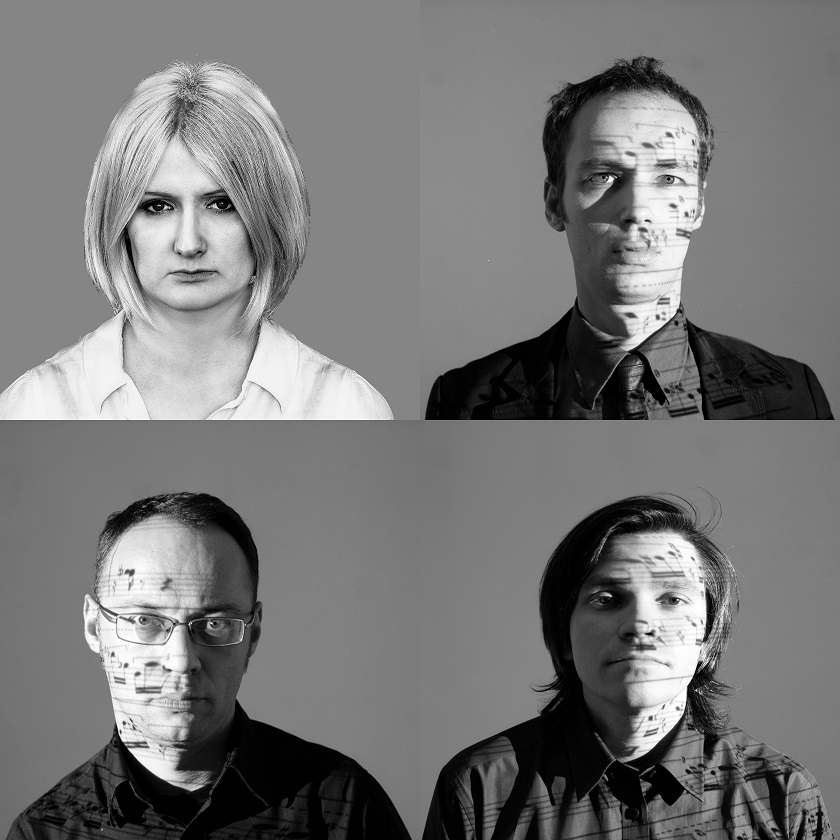
Kwartludium
Kwartludium, formed in 2002, consists of graduates of Music Academies in Warsaw, Bydgoszcz and Gdańsk: Dagna Sadkowska (violin), Michał Górczyński (clarinet, bass clarinet), Paweł Nowicki (percussion), Piotr Nowicki (piano). The ensemble focuses on performing works of young composers active both in Poland and abroad, created specifically for this unique instrumental combination. Contemporary improvised music also plays an important role in the group’s activity. Kwartludium’s repertoire includes graphic and intuitive compositions of the most significant representatives of the new music such as Karlheinz Stockhausen, Carl Bergstroem-Nielsen, Cornelius Cardew, Roman Haubenstock-Ramati, Christian Wolff and Dubravko Detoni. In its artistic output Kwartludium has many Polish and worldwide premiere performances.
The ensemble performed in USA, Great Britain, Italy, Belgium, Netherlands, Germany, Denmark, Finland, Slovakia, Ukraine, Russia, Turkey, Australia and South Korea. The group performed on numerous festivals such as Warsaw Autumn International Festival of Contemporary Music, Unsound Festival in Kraków and New York, Dialogue of Four Cultures Festival and Musica Moderna in Łódź, Ensemble Europa in Cologne, C3 in Berlin, Copenhagen Open Form Festival, LOOP Festival in Brussels, Nuove Musiche Festival in Palermo, Contrasts International Contemporary Music Festival in Lviv, CODES Festival of Traditional and Avant-garde Music in Lublin, Musica Polonica Nova in Wrocław, Laboratory of Contemporary Music in Warsaw, jaZZ & beyond Improvised Music Festival in Katowice, Audio Art Festival and Ad Libitum Improvised Music Festival in Warsaw, New Music Days and Avant Days in Gdańsk to name but a few.
In 2007 Kwartludium became the laureate of the ‘Young Poland’ Scholarship Programme of the Minister of Culture and National Heritage.
The ensemble’s artistic output comprises three records released by DUX label and an album Catalogue des Arbres recorded in collaboration with Michał Jacaszek released by the British label Touch. In April 2015, the group’s latest album titled Hammond Project recorded with organist and composer Dariusz Przybylski was released by Requiem Records.
In 2008, during the 51st Warsaw Autumn International Festival of Contemporary Music, the ensemble took part in a unique project, performing compositions written by the most promising Polish and Latin American composers for beatboxers and Kwartludium.
In 2009, Kwartludium alongside 21 most remarkable ensembles specialising in performing contemporary music took part in a prestigious European project titled Re:New Music, promoting the work of selected European composers. In 2012, the group was invited to participate in another European programme New Music:New Audiences which was a continuation of the Re:New Music project.
http://kwartludium.com/
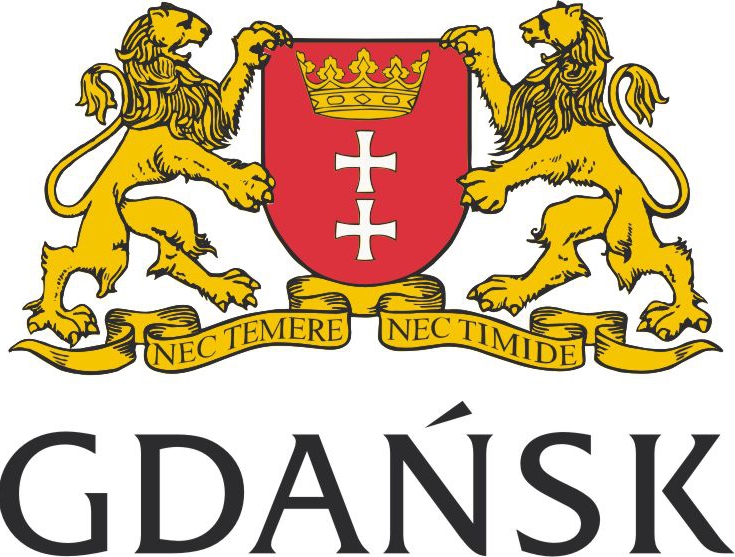
该活动由波兰格但斯克市资助,作为格但斯克市文化赠款项目的一部分
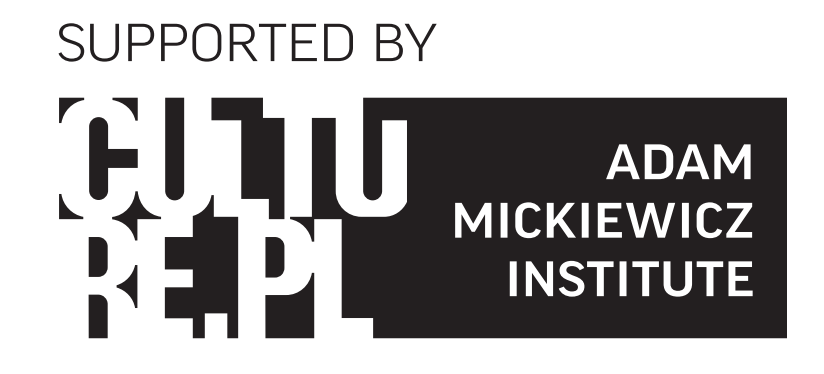

Composers (occording to the repertoire order)

Dai Bo
Dai Bo is a composition faculty member of Central Conservatory of Music where he studied with Prof. Du Yong and Prof Ye Xiaogang successively, and earned Ph.D degree in composition.
As a composer, he was invited to give his personal works special concerts in New York, Morelia, Shanghai, and Beijing. As a pianist and harpsichordist, he held multiple piano and Harpsichord recitals at the Forbidden City Concert Hall, Beijing.His Invisible Mountain,theprize-winning work in the Beethoven international composition competition, has been performed in Poland, Norway, and America. His commissioned works Wojski's Horn Concerto, harpsichord concertoSpace-time continuum - Pro et Contra,piano divertimento Disappeared Landscapes, and flute quintet Prisoner’s Wombhave been highly praised.His song cycleThe Call of the Dawn was awarded the ‘2015 Youth Talent in Art’ by the National Art Fund. He made his collaborated recording Gu Jia Ye with Cellist Na Mula. He composed the original soundtrack for the upcoming ten-episode documentary The Journey of Chinese Plants.
Mr. Dai is hailed by the renowned composer Krzysztof Penderecki as “one of the most talented young composers among his peers”. Rachel Copper, the art director of the US Asian Society, praises that “Dai Bo has incredible composition talent, comparable with any great composer. He is proficient in history and philosophy, and integrates the East and West, conveying the Universe in his music”.
Footprints on the sands of time
The work features the short tone of the folk song style of the southwestern China, only in a different musical context and juxtaposed with inhomogeneous/ mismatched/ unexpected music lexicon. It creates the impression of omnipresent sound of the traditional music, but one that flourished on a totally strange land. It is as if, in a time of instantaneous changes, each individual had the memory severed from his part of the history. All may have their Neverland, which they can never return, and yet none readily undertakes such return. This paradox renders our conception of time more post-modern, like items wrapped in the cloak of creation, albeit the alienation from the tradition.
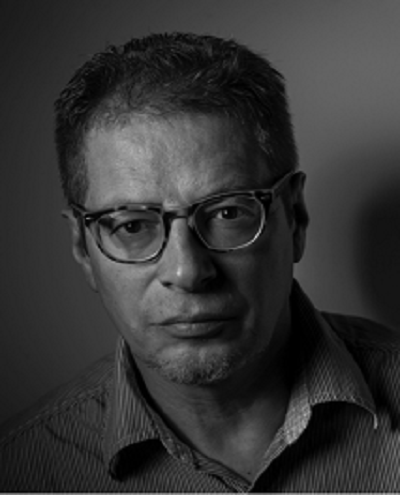
Tadeusz Wielecki
Composer and double bassist, born 1954 in Warsaw. He studied double bass with Alfred Wieczorek and Andrzej Mysiński and composition with Włodzimierz Kotoński at the Warsaw Academy of Music.
In 1986 he received the Witold Lutosławski scholarship. In the years 1986-87 he continued his education with Isang Yun in West Berlin and Klaus Huber in Freiburg im Breisgau. As a double bassist, Wielecki performs contemporary solo works and has given concerts in a number of European and Asian countries, as well as in the United States. In 1995 his "A Very True Story" for tape received the highest award at the EAR radio competition and Budapest, and in 1999 his "Concerto à rebours" for violin and orchestra (1998) was recommended at the UNESCO International Rostrum of Composers in Paris.
His works have been commissioned by institutions, festivals and ensembles such as Warsaw Autumn, Polish Radio, the Darmstadt Summer Courses for New Music, Klangspuren in Schwaz, Klangforum Wien, Hiroshima Symphony Association, Klangforum Wien, New Music Orchestra (OMN) in Katowice, Forbidden City Chamber Orchestra in Beijing and many other ensembles and institutions. Between 1999 and 2016 Tadeusz Wielecki was the director of the Warsaw Autumn International Festival of Contemporary Music.
Tadeusz Wielecki: Multiple Image
The composition is inspired by ‘dynamistatics’ – a mysterious state that refers to everything that is movement and rest at the same time. And that’s what the music is: whenever we listen to it, we experience something similar to a ‘resting motion’ or ‘motile rest’. For music is both dynamic and static, and these two properties cannot be separated. This phenomenon was the topic of the Warsaw Autumn Festival in 2015 and for its purpose a neologism-oxymoron ‘dynamistatics’ has been invented. Multiple Image, referring figuratively and literally to the Pythagorean concept of harmony of spheres and a vision of rotating celestial bodies, which circulate creating a sound system of cosmic harmony, is dynamistatic par excellence: its construction relies on numerous sound loops, i.e. repeated harmonic formulas overlapping each other. Each of these formulas is part of one harmonic structure common to the entire work, but maintains a different tempo, distinct from the others. The looped layers-lines created in the course of repetitions present a system of different velocities of sound movement in a common harmonic system and symbolise the movement of celestial bodies, their revolutions and orbits of various planes and lengths.
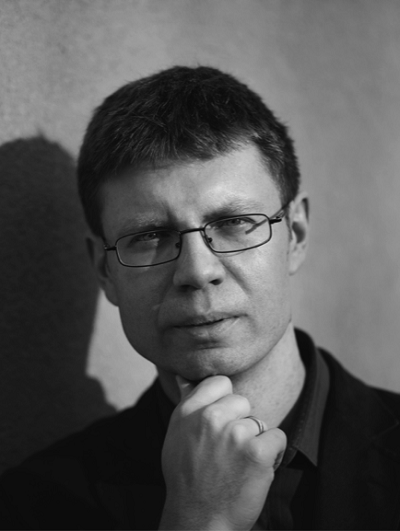
Wojciech Ziemowit Zych
Born 1976 in Warsaw, studied composition with Marek Stachowski at the Academy of Music in Kraków, graduating in 2001. The following year he pursued postgraduate composition studies with Peter-Jan Wagemans at the Rotterdam Conservatory. Since then he has been working at the Academy of Music in Kraków.
In 2006 he completed his doctorate in composition. From 2006 to 2008 he was a member of the programming board of the Warsaw Autumn International Festival of Contemporary Music. His pieces have been performed at the Warsaw Autumn, Ultraschall Festival in Berlin; the Musikhøst Festival in Odense, the Schelswig-Holstein Festival, London Sinfonietta experimental music festival, Focus Festival New York 2011; ISCM World Music Days 2013 in Slovakia.
His works have been released on CDs by Dux Records, including a CD with his orchestral pieces (DUX 0722). He has received commisions from Warsaw Autumn, Wratislavia Cantans and Sacrum-Profanum festivals. In the artistic season 2012-2013 he was composer in residence with Kraków Philharmonic Orchestra. In 2017 he was awarded the Polish Composers’ Union Annual Prize. In 2018 he was awarded the bronze Medal for Merit to Culture – Gloria Artis and a special prize of the Polish Ministry of Culture and National Heritage.
Wojciech Ziemowit Zych: Always Present Longing
The title of the composition has been derived from Tadeusz Wielecki’s phrase from narrator’s text from his piece Egocentric Poem for amplified piano and tape (1996). Always Present Longing, dedicated to Tadeusz Wielecki, has been written for Kwartludium in Spring 2005 as a result the composer’s several-year collaboration with the ensemble. The piece employs multiphonics and other contemporary playing techniques for bass clarinet, double stopped harmonics combined with glissandi on the violin, double bowing technique for vibraphone, as well as resonating harmonics on the piano in the final movement. It consists of three compact movements (I. Andante, II. Allegro, III. Lento), of which second and third are played without a break. The piece was included in Kwartludium’s first CD released by Dux Records. However, it was first performed live much later, in November 2007 by Danish musicians during the Musikhøst Contemporary Chamber Music Festival in Odense, Denmark. First live performance by Kwartludium took place during the Musica Polonica Nova Contemporary Music Festival in Wrocław, Poland in April 2010.
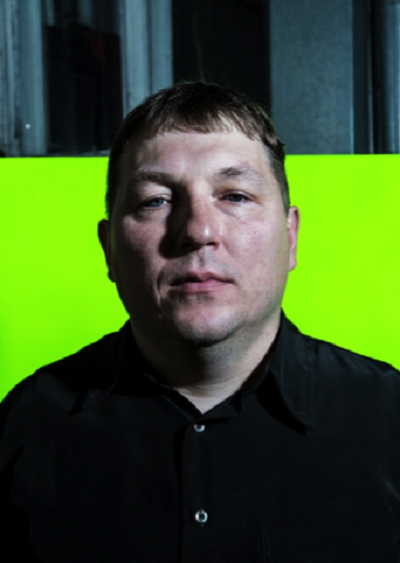
Zoltan Almashi
Ccomposer and cellist, born 1975 in Lviv, Ukraine. He studied composition and cello with Yuri Laniuk at the the Mykola Lysenko Lviv Music Academy, later pursuing his doctoral degree under the supervision of Yevhen Stankovych at the Petro Tchaikovsky National Music Academy of Ukraine.
He is a two-time winner of the Sergei Prokofiev Competition (as cellist and composer), as well as the winner of the Levko Revutsky (2003) and Boris Lyatoshynsky (2012) awards. He has composed works for various instrumental groupings, mainly chamber music. His works were performed in Switzerland, France, Poland, Belarus and Moldova. He has participated in all major music festivals in Ukraine: Contrasts International Contemporary Music Festival in Lviv, International Music of Youth Forum in Kiev, Kyiv Music Fest, Premieres of the Season in Kyiv, Two Days and Two Nights of New Music in Odessa.
In 2008, as a grant holder of the Gaude Polonia Programme of the Polish Minister of Culture and National Heritage, he completed a composer internship with Aleksander Lasoń at the Academy of Music in Katowice. Almashi works as a cellist with the National Ensemble of Soloists ‘Kyivska Kamerata’, he is also a member of various chamber ensembles performing contemporary music.
Zoltan Almashi: Echo from the Blow to the Dry Spruce Stem in Rycerka Górna
The work is a reflection on the musical tradition and folklore of the Carpathian region, in particular highland and Romani instruments. In addition to the use of folk material (melodic motifs, rhythm, etc.), the composition recreates the atmosphere of natural music playing in folk tradition, with a large dose of fun, surprise and openness. The contrast between organic playing of unprofessional musicians and the composer's reflection construction allows the composer to convey some kind of tension and the audience to perceive music on several levels. It also releases the improvisation potential of the Kwartludium musicians.
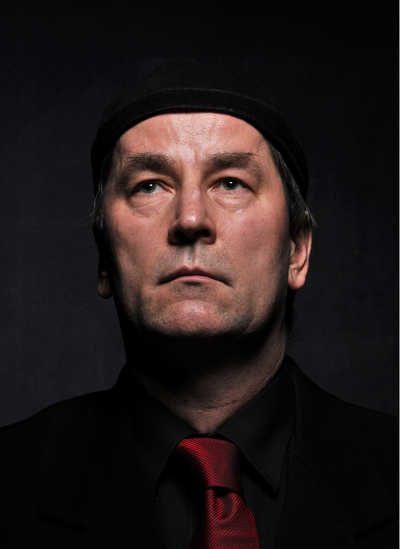
Leszek Kułakowski
Composer, jazz pianist referred to by the critics as ‘jazz visionary’, music theorist, full professor at the Academy of Music in Gdańsk, where he founded the Faculty of Jazz and Stage Music. He is also a founder and artistic director of the international Komeda Jazz Festival and the Krzysztof Komeda Composers’ Competition.
As a composer, Leszek Kułakowski is fascinated by jazz understood as a material for universal musical narration. He is the guru of the so-called Third Stream, which combines modern music with jazz. He has composed over 150 jazz pieces for various instrumental and instrumental / vocal sections – from jazz ensembles to big bands and symphony orchestras. When it comes to short jazz forms, he experiments with sounds by combining jazz with aleatoric music ("Aleatomodalblues"), serialism ("Seriablueslism"), polymodalism and polytonality. He has worked with many stars from the American and Polish jazz scene and performed at major jazz festivals in Poland, Western Europe and the United States.
His most important works include: "Missa Miseri Cordis" for soloists, choir and symphony orchestra, "Piano concerto" for piano and orchestra, "Sketches” for Jazz Trio & Symphony Orchestra, "Aleatomodalblues", "Ostinatopermutation" for violin, bass clarinet, marimba, gran cassa and piano.
Leszek Kułakowski: Ostinatopermutation
‘I have composed Ostinatopermutation to a commission from the excellent quartet Kwartludium. The piece, using the language of contemporary music, exposes the leading features of jazz music such as repetition, rhythmic intensity, motor rhythm, ostinato undergoing numerous mutations and permutations throughout the whole piece, jazz drive and groove.’
– Leszek Kułakowski
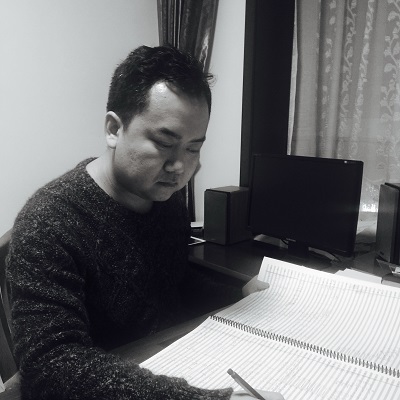
Chao Bai
Chao Bai .Young Composer. Doctor of Hochschule Fuer Musik Theater und Medien Hanover in Germany. Now,Currently teaching in Composition Department at the Xi'an Conservatory of Music. His creation involves a variety of musical genres and forms, and his works are often performed in China and Europe. In 2017, his work "The Sound of the Sky - The Voice of the Clouds" for accordion, Sheng and Chinese national orchestra, as the first concerto of accordion and Chinese national orchestra in China, it attracted wide attention and was listed in 2019 as the National Art Foundation Youth Creative Talent Support Program. His chamber music work "Time of Light" was selected in the 2018 World New Music Days (ISCM) and Beijing Modern Music Festival. He successfully performed at the Wangfu Concert Hall of the Central Conservatory of Music.
The Mountain the Cloud the Afar
"The Mountain the Cloud the Afar" was created for chamber music, aiming to express the creator’s infatuation with natural landscapes such as views in the distance. The pictures of inter-wining mountains and clouds in the distance often touch me and make me ponder on the emotional connection between human and nature, which in turn inspires me to explore and admire all the things in the world. The work consists of three seamlessly connected sections: Sea of Clouds, Dance of Mountains, and Sacrifice in the Distance, all of which serve to convey the sound of mountains and clouds in my heart.
